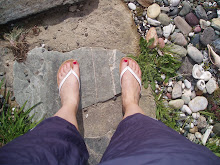What does it mean to be a massage therapist and a multi-disciplinary healthcare provider?
Multi-disciplinary practice among healthcare practitioners including massage therapists is becoming standard practice in the holistic treatment of patients/clients seeking professional help on a physical, emotional and/or spiritual level.
According to Opie (1997), multi-disciplinary teams of healthcare providers can deliver a cost-effective and resourceful service to a client whose needs may require the specializations of several practitioners with sufficiently different yet complimentary scopes of practice. The inevitable outcome of this is the overlapping of defined or implied roles, potentially causing conflict, due to the blurring of professional barriers defining respective scopes of practice (Robinson & Cottrell, 2005).
Furthermore, the healthcare hierarchy of professional dominance must involve mutual respect and understanding of others scopes of practice by massage therapists and practitioners generally, the boundaries defining these (by law or otherwise) and the respective roles that can lead to an interactive and successful multi-disciplinary team. The intention of reaching consensus in decisions and utilising other practitioners' strengths and specializations within the team results in optimum and cost-effective treatment, and can assist in the removal of barriers naturally arising between rival professions.
The incorporation of C.A.M (Complementary Alternative Medicines) into the standard medical healthcare system as recommended by W.H.O (World Health Organisation) is a step forward in the direction of holistic multi-disciplinary practice more in line with massage therapy and its expected route.
However, the biggest concern facing massage therapy as a profession in New Zealand is the current limited scope of practice that has been defined by our national representative body: Massage New Zealand. This is potentially restricting the crucial stage of growth our profession is in, where we are primarily interested in expanding rather than confining our scope of practice.
The main elements of successful multi-disciplinary practice within the field of massage therapy is the ability to refer to other practitioners with the relevant scope of practice (e.g. physio, osteopath, GP, counsellor) and to identify when it is clear that the client requires care outside of your scope of practice.
That said, this really depends on one's individual areas of professional strength as a massage therapist: a practitioner may be primarily trained in massage, but may also be a qualified and registered acupuncturist, immediately changing their position on the healthcare hierarchy and boundaries defining their scope of practice, challenging the strictly defined barriers of who can and can't refer to you/be referred to by you. The boundaries of scope of practice may also overlap, questioning the need for two practitioners with similar skills and specialisations in a multi-disciplinary team (e.g. a physiotherapist and a massage therapist, who are both trained in advanced assessment techniques and soft-tissue manipulation).
Maintaining positive multi-disciplinary relationships and mutual respect for your fellow healthcare colleagues, fosters an excellent environment for the implementation and growth of multi-disciplinary teams, when treating patients with requirements that span more than one practitioner's limited scope of practice. Both knowledge of our position in the established healthcare hierarchy and the existing boundaries of the massage therapy scope of practice are paramount to the professional image of our modality and reputation amongst other healthcare providers.
References:
Elluminate: Multi-Disciplinary Practice (28th October 2009). Otago Polytechnic Massage Therapy Diploma Course.
My own thoughts.
Opie, A. (1997) Effective Team Work in Healthcare: A Review of Issues Discussed in Recent Research Literature. Health Care Analysis, 5 (1).
Robinson, M. & Cottrell, D. (2005) Health Professionals in Multi-Disciplinary and Multi-Agency Teams: Changing Professional Practice. Journal of Interprofessional Care, 19 (6).
